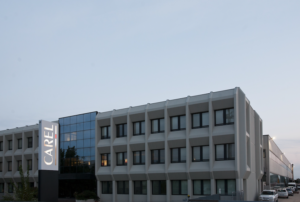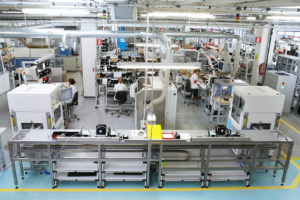It is the end of May when we “visit” Carel’s office in Brugine (PD). Like many other companies that we have “seen” in recent weeks, here all white-collar workers are still working from home, while production staff are on site. We are in what Carel describes as the second phase of the Covid era: “We subdivided the Covid era into three phases” Giandomenico Lombello, Managing Director of Carel explains. “The first phase lasted until the beginning of May, and was the response reaction to the disaster: we had to face the emergency and organise our resilience. The second, where we are now, is the recovery phase, in which we are planning the activities needed to secure our business. The subsequent phase will be, as we call it, “Explore the new normal”: we will have to learn to live in a normalcy that, we believe, will be somewhat different from how things used to be”.

While it is impossible to make statements about the future, we can however analyse the present: what does securing the business mean? “Today, Carel has 9 plants on three continents: it has never pursued a relocation policy for economic reasons, but rather a policy to take the company and its production sites as close to the customer as possible, in other words, production sites that can supply the nearby region. For us, it has always been essential to offer products of the same quality as those made at the parent site, on all markets. For this reason, the management of all our sites around the world is aligned to the management of the parent company: same processes, same technologies. On top of this, Carel has made the strategic decision to duplicate production lines for most of its products, distributing them across different continents. Both of these aspects have been important in helping us cope with the first phase of the emergency, as when the Chinese production site shut down, we were able to supply our customers from the sites located on other continents. Our strategy has proven to be very robust and allowed a certain level of business continuity. Nonetheless,the pandemic has also highlighted some weaknesses in the supply chain: electronic controllers, our core business, comprise many parts that are usually purchased locally. When an entire country is shut down – as has been the case in this pandemic, the supply of components for our production becomes problematic. As a matter of fact, although our production capacity as a whole could have handled the emergency despite some closures, the upstream supply chain has been our bottleneck. Therefore, securing our business for us means implementing logistical operations to ensure the uninterrupted availability of the components, at least on the medium-term”.
Forward-looking choices in the past have made your company very resilient: “Definitely! Without this structure, we would have been in a much more serious situation”, Lombello says. “The decision we made over the period 2017-2019 to increase our production capacity beyond our sales needs at the time enabled us to move production from one continent to the other seamlessly”.

Right now, Carel works at a faster-than-normal pace to settle outstanding orders and replenish stocks, although it is hard to make predictions: “Some of our customers are supply chains that never stopped working, such asretail, data centers, telecommunications, air conditioning. On the other hand, there are supply chains that not only have been heavily impacted, but for which recovery looks uncertain. Evidently, we too will suffer the effects of their situation”.
And what about your people? “Introducing work from home was not difficult from an organizational standpoint because, as well before this emergency and for other reasons, Carel had previously planned to adopt this type of work some of our staff. Thus, the facilities for remote working were already in place. On the other hand, we had to pay close attention to the mood of our employees. If I had to compare the 2008/2009 crisis with today’s, I would say that, although very serious, the former did not in general lead to awareness of the severity of the situation, or a real sense of crisis. The current situation, on the other hand, perhaps also due to working from home that, despite many advantages, contributes to isolating people, has created a lot of pessimism and concern. For this reason, it was essential for our company to focus on internal communications, so as to maintain a sense of belonging and reassure colleagues about the company’s health. Not only in Italy, but also abroad where Carel now has more than 50% of its staff”
Have you succeeded? “I think so. And I must admit that these new ways of working have advantages: they save commuting time, energy and ultimately CO2 emissions too. Furthermore, by experimenting directly with “remote communications”, we have also been able to refine new methods in our relationship with customers. Although nothing can replace a handshake and personal contact, which is why Carel has always valued exhibitions highly, we must acknowledge that digital “relationships” have their benefits too. In the future, we will consider these more in our corporate communication strategy”.




